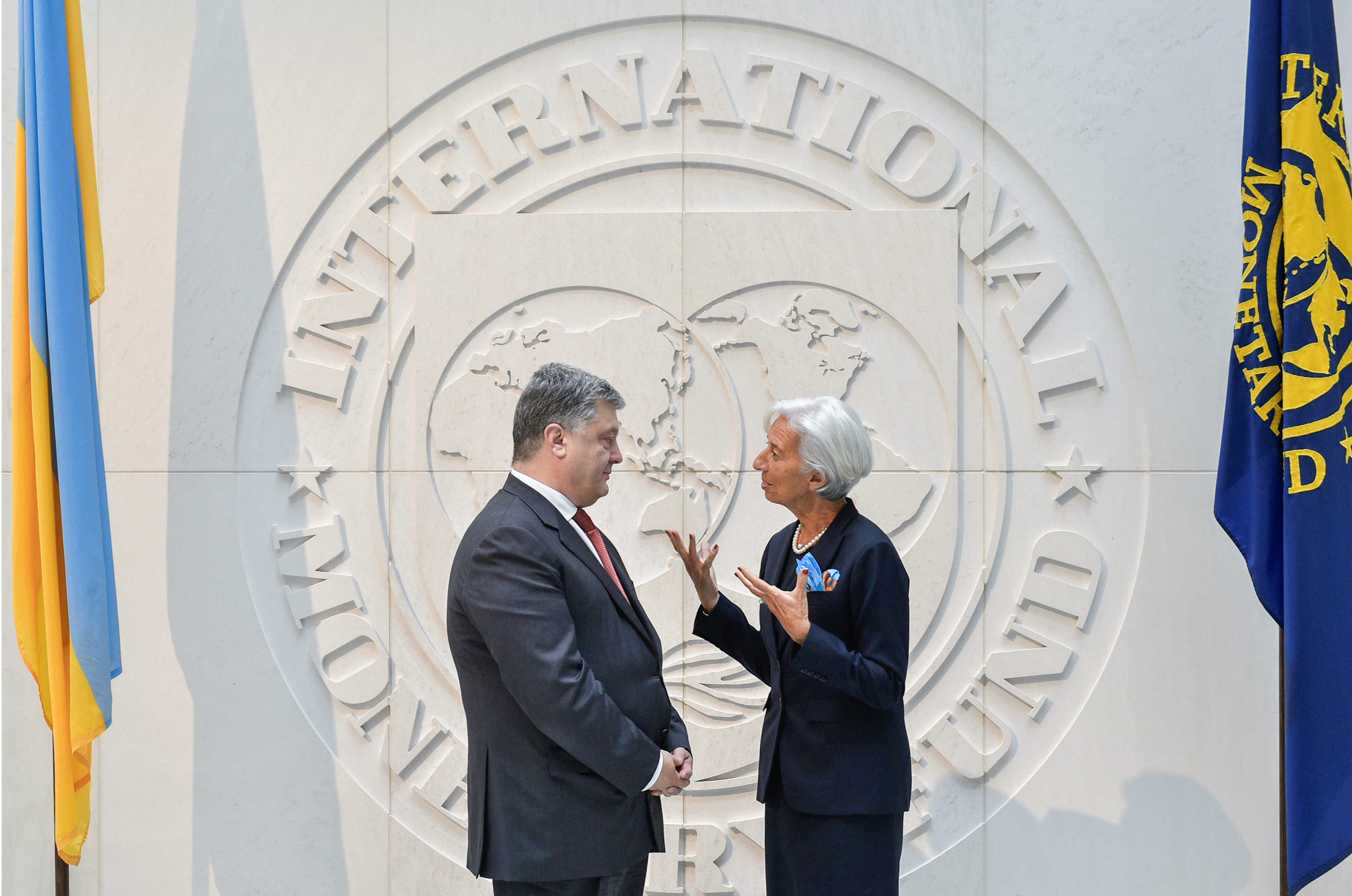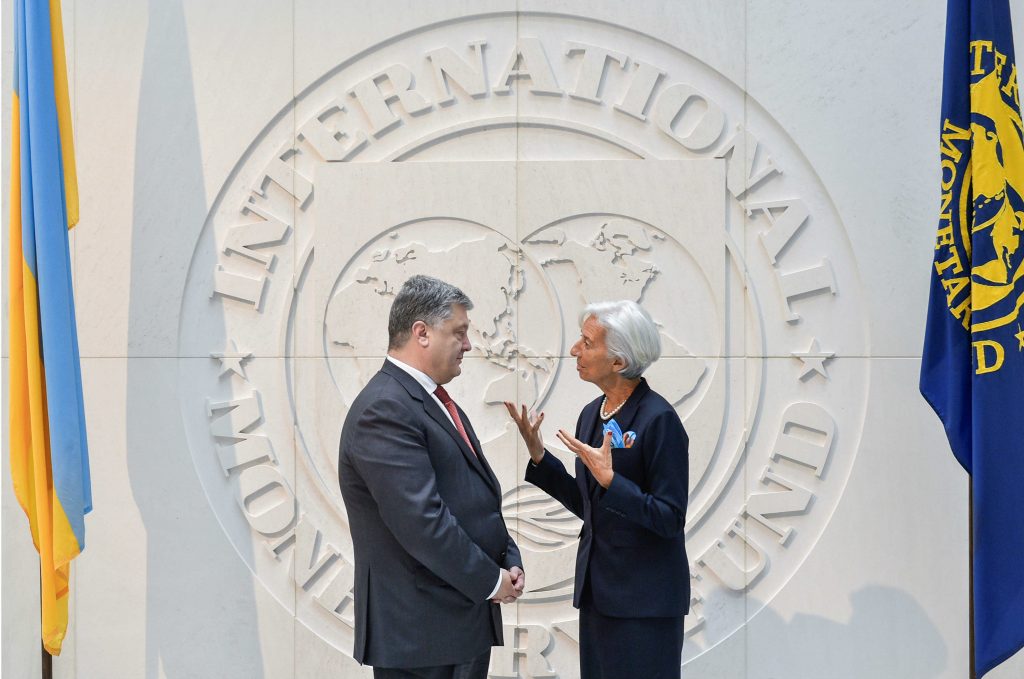 The recent resignation of all of the independent members of the Naftogaz Supervisory Board illustrates the sad state of the reform process in Ukraine. The reasons behind these resignations, which were publicly explained by the former members of the supervisory board in a letter to the Ukrainian government, are straightforward: they resigned because the Ukrainian government blocked gas market reforms, failed to implement corporate governance reform at Naftogaz, and continually attempted to interfere through “manual control” of the company’s operational activities.
The recent resignation of all of the independent members of the Naftogaz Supervisory Board illustrates the sad state of the reform process in Ukraine. The reasons behind these resignations, which were publicly explained by the former members of the supervisory board in a letter to the Ukrainian government, are straightforward: they resigned because the Ukrainian government blocked gas market reforms, failed to implement corporate governance reform at Naftogaz, and continually attempted to interfere through “manual control” of the company’s operational activities.
It seems that Ukraine’s successful return to international capital markets in the form of a $3 billion Eurobond issuance has led the Ukrainian government to believe that money can be accessed in the future even in the absence of reforms. Officials now openly tell Western embassies in Kyiv that Ukraine “no longer needs the IMF.” International investors, however, are unlikely to agree.
The negative response of the IMF, European Bank for Reconstruction and Development, and European Energy Community to such statements, and their expressions of concern about the reform process, should have caused the government to reconsider. Instead, the acting prime minister’s team continues to seek direct control over the operational activities and financial flows of Naftogaz and other large state-owned enterprises.
Ukraine’s energy sector, especially the gas sphere, has always been a source of political corruption and ill-gotten funds for the country’s oligarchs. They include the notorious Dmytro Firtash, who waits in Vienna for a decision on extradition to the United States but nonetheless controls a large part of the regional gas distribution network in Ukraine.
At Naftogaz, reforms and positive changes finally began in 2014 after the Revolution of Dignity with the arrival of the team led by CEO Andriy Kobolyev. Arseniy Yatsenyuk, then the prime minister of Ukraine, actively supported the changes initiated by the new team.
The result was the actual independence of Ukraine from Russian natural gas, which was considered impossible by many European and American experts at the time. Corruption, first of all political, received a crushing blow within Naftogaz. The company quickly became a leader in the use of the ProZorro e-procurement system, which has resulted in procurement savings totaling billions of dollars every year.
The main factor behind such results was Naftogaz’s new corporate governance. This reformed governance system included the creation of a supervisory board composed largely of independent directors as well as oil and gas industry professionals with years of experience in the world’s most successful energy companies. Independence in decision-making, long-term experience, and knowledge of best practices allowed Naftogaz to quickly become a poster child for positive reforms in the energy sector as well as in the sphere of public administration more broadly.
However, the situation changed in April 2016 with the arrival of the new government, which immediately blocked corporate governance reform for large state-owned companies. The government virtually stopped any actions aimed at reforming the gas market and the separation of Ukraine’s gas transportation system from Naftogaz—the so-called “unbundling plan” within the framework of the provisions of the Third Energy Package of Europe, which Ukraine has committed to fully implement. The vice prime minister who was entrusted with this work, Volodymyr Kistion, blocked the execution of all reform plans previously approved by the Cabinet of Ministers; in fact, the current government has failed to fulfill even its own plans.
The head of a Naftogaz affiliate, Igor Prokopiv, was dismissed according to the demands of the independent members of the supervisory board of Naftogaz due to suspicion of corruption, but was in turn appointed Deputy Minister of Energy with the support of Kistion.
Since April 2017, Ukraine’s international partners have been signaling the need to restart the reform process. The lenders of Naftogaz, the EBRD, and the World Bank have repeatedly written to the Ukrainian government about the rollback of reforms, while the IMF and the Secretariat of the European Energy Community publicly and privately emphasize the critical importance of following through on the previously agreed reform plans.
But the government seems prepared to completely abandon systemic reforms in favor of tactical populist measures. Thus, without any prior consultations, the acting prime minister announced the freezing of gas prices for private consumers, even though, according to the government’s signed commitments to the IMF, the price of such gas should be calculated in accordance with a pre-approved formula tied to the market price of gas. Such a calculation would result in a price increase of 19 percent, but the government refuses to fulfill its obligations and its own regulations. It similarly refuses to fulfill the unbundling plan and implement the corporate governance reform plan in any of the state-owned companies, including Naftogaz.
The systemic reforms introduced by the Yatsenyuk government have been halted by the current government. As a result, in the near future, Ukraine risks remaining without external financing, since the IMF, followed by the European Commission and other international financial organizations, will not continue to provide funding without reforms. The Ukrainian government has the authority to prevent such a development. This, however, requires a clear will—one that is completely absent now.
As the most credible and influential actor in Ukraine, the United States—led by the Trump administration and Congressional leaders—must push the Ukrainian government to cast aside short-term political thinking and instead follow through on its reform commitments. To avoid financial calamity in Ukraine, this must be done, and done now.
Oleksandr Kharchenko is director of the Energy Industry Research Centre in Kyiv.
Image: Managing Director of the International Monetary Fund (IMF) Christine Lagarde talks to Ukrainian President Petro Poroshenko during their meeting at the IMF headquarters in Washington, U.S., June 20, 2017. Mykola Lazarenko/Ukrainian Presidential Press Service/Handout via Reuters
